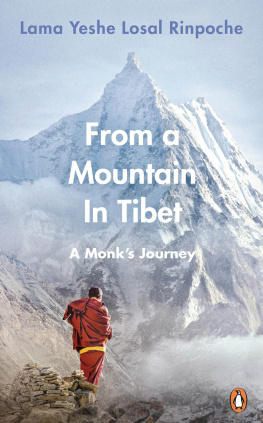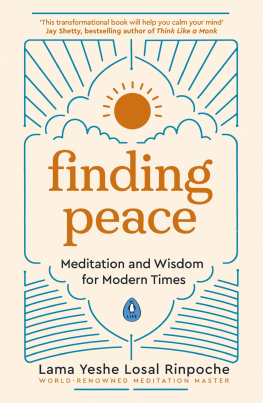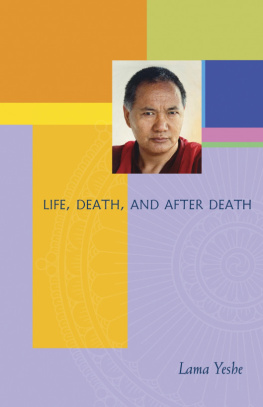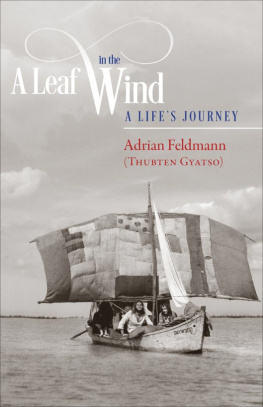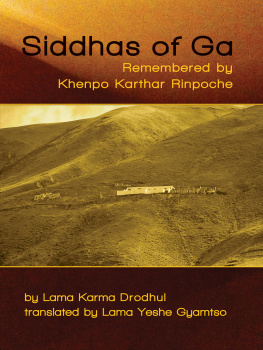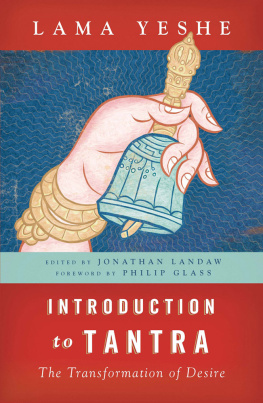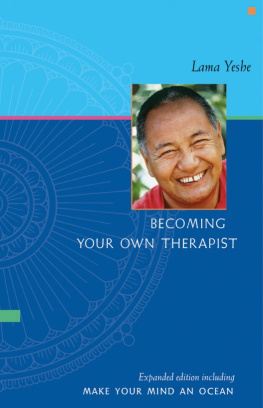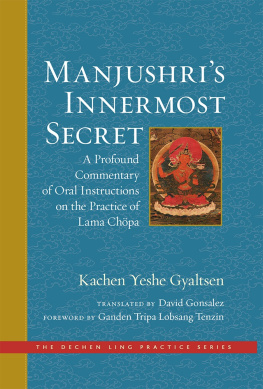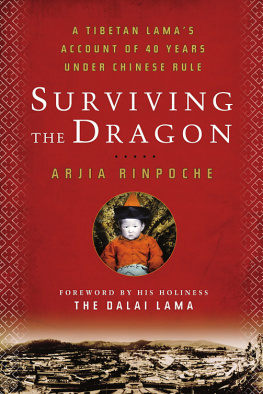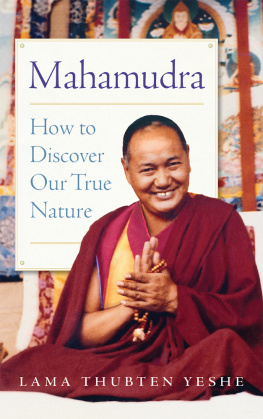Lama Yeshe Losal Rinpoche
FROM A MOUNTAIN IN TIBET
A Monks Journey

PENGUIN BOOKS
UK | USA | Canada | Ireland | Australia
New Zealand | India | South Africa
Penguin Books is part of the Penguin Random House group of companies whose addresses can be found at global.penguinrandomhouse.com.

First published by Penguin Books in 2020
Copyright Lama Yeshe Losal Rinpoche, 2020
The moral right of the author has been asserted
Cover photos Alamy and Millennium Images
ISBN: 978-0-241-98896-1
This ebook is copyright material and must not be copied, reproduced, transferred, distributed, leased, licensed or publicly performed or used in any way except as specifically permitted in writing by the publishers, as allowed under the terms and conditions under which it was purchased or as strictly permitted by applicable copyright law. Any unauthorized distribution or use of this text may be a direct infringement of the authors and publishers rights and those responsible may be liable in law accordingly.
This book is dedicated to my root guru His Holiness the Sixteenth Karmapa and to my brother Chje Akong Tulku Rinpoche. It is thanks to their wisdom, compassion and tolerance that I became the person I am now. If you find anything in this story useful, it is down to them. The proceeds from the book will be equally divided between the offices of His Holiness the Seventeenth Karmapa and the third Akong , once he is found and recognized.
Introduction
I was born in a place where there were no roads or motor vehicles to travel on them; no electricity, no radios to bring us the news; no shops or schools. My village was home to twelve families and the animals we tended. I was born as the tide of the Second World War was turning in favour of the Allies, and the Chinese civil war that would lead to victory for the Communists was resuming. As a child I knew nothing of the tumultuous times that were encroaching on my idyllic world. I didnt see a car until I was fifteen years old, and when I did it appeared to me as an inexplicable marvel. It was being driven by a Chinese soldier.
Since then I have lived in the monastery where my brother was abbot, high on the freezing desert plains of eastern Tibet. I have lived in a refugee camp on the border between Tibet and India, then in a cramped flat in 1960s Delhi, in a draughty Victorian hunting lodge when I arrived in the UK, and in swanky private houses in London and New York. I have spent years living in a bare cell in solitary retreat, and many more years in the Buddhist monastic community of Samye Ling that my brother co-founded in the late 1960s.
Now I am an old man of seventy-seven and I still live at Samye Ling, which has been my home for most of my life. The view from my window is of green rolling hills, as it was when I was a child, but now I live near Lockerbie in Scotland and the Tibet of my childhood is no more.
My life has been far longer than I ever expected, and I am content when I survey its contours. Every turn, however challenging or unexpected, has brought me to this place where I am able to offer reassurance and guidance to anyone who is seeking peace. This is my most deeply held wish: that more and more people will begin to tame their unquiet minds so that they may be able to live joyfully and to offer compassion to every living being on this Earth.
During my time as a teacher, many people have come to me with stories of hopelessness. They are so disheartened that they genuinely believe they have no chance of freeing themselves from their issues. They feel too much has already gone wrong in their lives. They tell me about the traumas they are carrying the difficult childhood, the parent who was not there for them, the youthful transgressions, abusive or failed relationships, the addiction or bereavement all the messy things of life that have left them feeling like a failure, or irredeemably hurt and lost.
I reply that their stories may appear to them to represent reality but that I see things, and see them, quite differently. I insist that change is possible for every single one of us, however broken or exhausted we may feel. Its not easy, I know, but each difficult experience we have struggled with, every challenge we face, is the raw material for our transformation. All our sorrow, suffering and confusion can be the basis for our unique process of change. Nobody is beyond hope.
Sometimes the persons response is that this may be true for someone like me a , a holy man, born into a culture in which Buddhism was part of everyday life but it doesnt apply to them. They say to me, Lama Yeshe, you are not like me; I am not like you. The implication always seems to be that they are destined to remain stuck, while I was born with some mystical faculty for evading suffering which they themselves lack. This is not the case. Im not that different and am certainly not special. Not at all.
It is true that I was born into a religious feudal system, and that I fled my homeland at the age of fifteen when it was invaded by the Chinese military. I was one of a party of around 300 people that left our country to escape over the Himalayas, and one of a group of only thirteen who reached the safety of the border with India, many months later. Those experiences, I will admit, are unusual.
But, then again, I have been a refugee, an immigrant, an Asian man living in a small town where there were few other Asians. Those experiences are not so unusual. Millions of people have lived them. And I have felt deep frustration and resentment, have been a disappointment to my immediate family and myself, a layabout without sense of purpose, a man desperately searching for peace. I have been selfish, self-indulgent, a failure. I have lost the person I loved most in the world. All that, I suggest to anyone who tries to tell me why I am so different, makes me just like them.
Perhaps the only thing that does distinguish me from many of those people I speak to (mainly Westerners) is that I have spent many years purifying my mind to enable it to settle easily into positivity rather than cling to negativity. It has not been an easy task, but I never thought it was impossible, because I have faith in the essentially positive nature of the mind. In Buddhism, mind is king. If we can change our mental orientation then everything else will follow.
This understanding is the opposite of what Ive come to think of as the typical Western mindset. Ive never forgotten the man who described himself to me as damaged goods. I could see the powerful hold that this idea of his own flawed nature had on him and it shocked me, because it was so alien to the way I view myself, other people and the world. In Buddhism we start from the understanding that there is always a part of us that is perfect and perfectly at peace. At the core of every human being is not sin or some sort of void but an innate goodness and intelligence. We call this Buddha Nature.
It has been my lifes work to find that part of myself in order that I might demonstrate to others that they too have the potential to find their own, and so bring about personal transformation. When such change is sought sincerely, for the express purpose of bringing more peace and happiness into the wider world, it will always come to pass. May this book offer hope and guidance to all who seek them.


